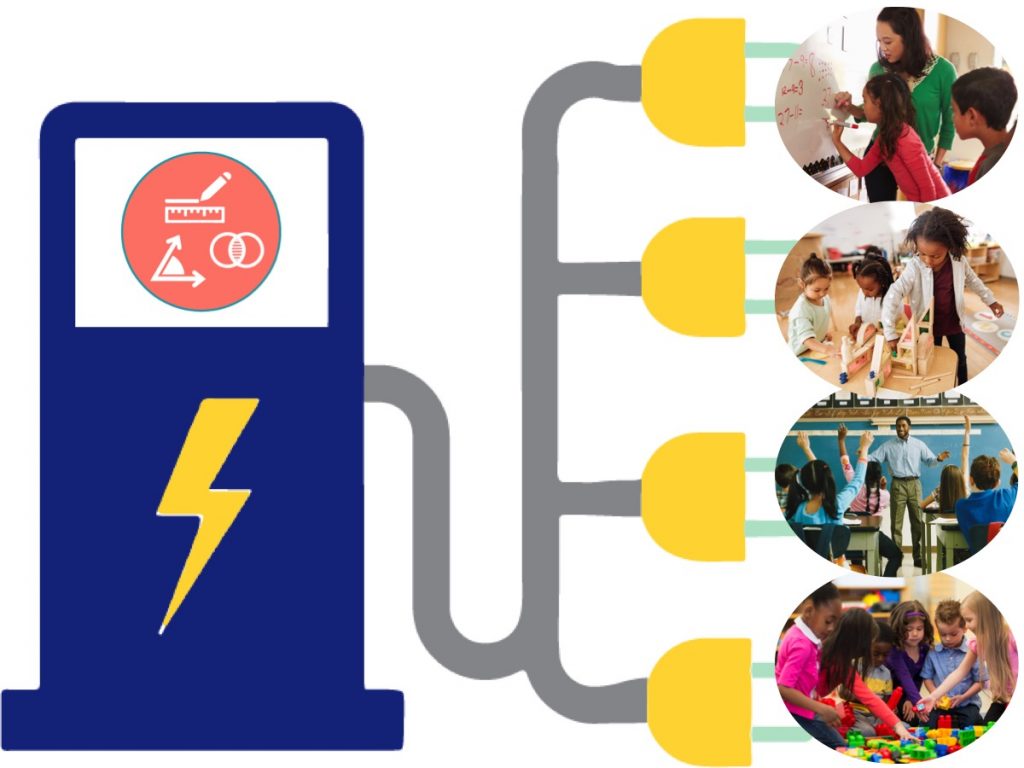
In the module, Early STEM Learning, we discussed how STEM learning opportunities are like a charging station. Learning opportunities in math enable children to “charge up” their math skills. They also help charge up their motivation in math. But not all children have the same number of math opportunities. Active engagement is an important part of the learning process. Because our culture has the stereotype that girls are “bad at math,” girls often do not get to play active roles during math work. This is the case when a girl is told, “you can be the notetaker.” Or when a teacher calls on boys more than girls to complete a math problem in front of the class. We also limit girls’ engagement with math when we encourage boys, but not girls, to play with building sets or other toys that boost math skills. This can happen implicitly, even by well-meaning adults who don’t think they hold a bias that “girls are bad at math.”
Boys in our society are able to charge up their skills more frequently than girls. As a result, boys are more likely to show interest in math than girls. And this difference only grows bigger with age. All children need opportunities to actively practice and build math skills in a hands-on way.
Math stereotypes impact groups of people by making them feel as though math isn’t for them. But it doesn’t have to be this way. Math is for everyone. We need to change our perceptions about math beginning with early childhood.
-
- Math-gender stereotype
- a belief that math is for a particular gender, such as girls or boys
- Math self-concept
- the association between the self and math
- Self-concept
- refers to how someone thinks about their self and their attributes